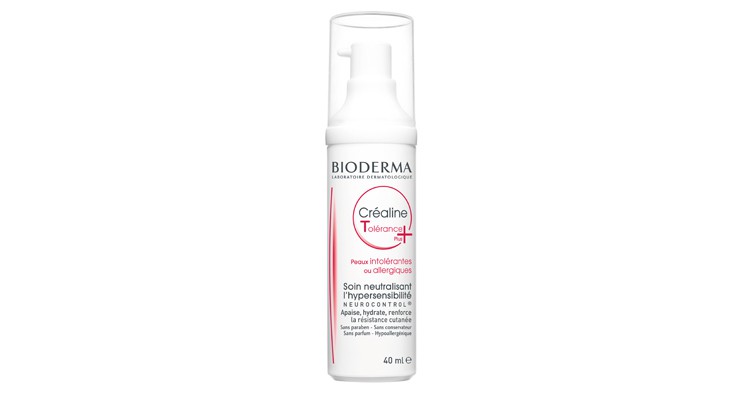The killer question: How to care for sensitive skin?
mis à jour le 6 October 2015 à 23:21
Sensitive skin needs to learn to defend itself by adapting your daily beauty routine and regenerate your skin’s cutaneous barrier. Here's how you can better prep your skin.
“We distinguish between two types of sensitive skin”, explains the dermatologist, Toni Ionesco. “One is due to an inflammatory disease (like rosacea) and require specific products or medical treatment. And the other are hypersensitive skins that react to stress, climate change, cold and so on.”
“Sensitive skin is skin where the immune system doesn’t work correctly. This phenomenon is due to a genetic, often hereditary, inheritance”, adds on Janick Le Carer, director of the French aesthetic school, Mary Cohr. Indeed, the skin lacks natural defences and its hydrolipidic barrier is deficient. Against the external factors (climate change, pollution), the skin isn’t sufficiently protected, which causes cutaneous pathologies: redness, broken vein, dilations of vessels, itching, and pimples. These symptoms also concern the reactive skins, but it isn’t a genetic problem. It is more about emotions at a particular moment, due to the cold, thermal shock or embarrassing situations. In brief, the symptoms of a reactive skin are temporary and can be localised (for example, to the cheeks). On sensitive skin, it is the whole epidermis that is very thin; therefore, the symptoms are chronic.
A BESPOKE BEAUTY ROUTINE
It is not because you have sensitive skin, that you have to banish all of your cosmetic and makeup products. “On the contrary, without ‘additional help’, the hydrolipidic barrier will have a great deal of difficulty strengthening itself and the problem will only get worse”, warns Janick Le Carer. Once your skin's nature is identified, you just have to stick to a beauty routine to soothe it durably. To protect your sensitive skin on a daily basis, choose a face cream full of restorative actives adapted to strengthen the skin’s cutaneous barrier.
Conversely, banish essential oils that have a boosting effect since sensitive skin requires soothing comfort. In terms of hygiene, banish soap: “it is your worst enemy,” underlines Toni Ionesco. Don’t be deceived by products containing salicylic acid, a powerful keratolytic that clears the pores. “If for combination and oily skin, this active has purifying virtues, for sensitive skin, it is too aggressive” he explains. Also pay attention to anti-spot creams and certain anti aging products and peels containing fruit acids (AHA). Their role? Exfoliate the skin by removing the dead skin cells, which is devastating to sensitive skin.
MAKEUP AND MAKEUP REMOVAL
For your base, favour blue or green colours to conceal redness. The new foundation creams are more and more effective. They boast of a comfortable texture, brightness and a matte finish. “Combined with a good cream, it is a good way to fight against external factors”, she specifies. For the removal of makeup, opt for smooth textures, such as a milk-based product. Micellar water adapted to sensitive skins are increasingly available on the market and are great for the skin as well. Warm a small quantity of the product between your hands then apply it using circular movements with your fingertips. Avoid using aggressive electric cleaning brushes. Remove the excess milk with a sponge or wet cotton wool.
One of the fears when we have sensitive skin is washing our face with tap water. To perfect the makeup removal, use a lotion formulated for sensitive skin.
You may wonder, do I necessarily have to give up the exfoliating scrub? “No, if you choose a compatible product with your skin's requirements”, reassures Janick Le Carer. Banish exfoliating scrubs with grains and opt for a softer scrub. Be careful to not choose an exfoliating scrub containing salicylic acid; a hyper cleaner with antiseptic agents designed to combat oily skin.
Now that you're well versed with how to take better care of sensitive skin, here are a couple of products to add to your stash.
Isabelle LAFOND



